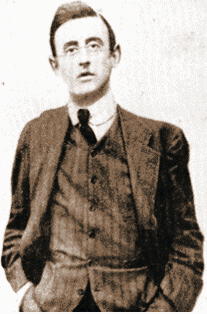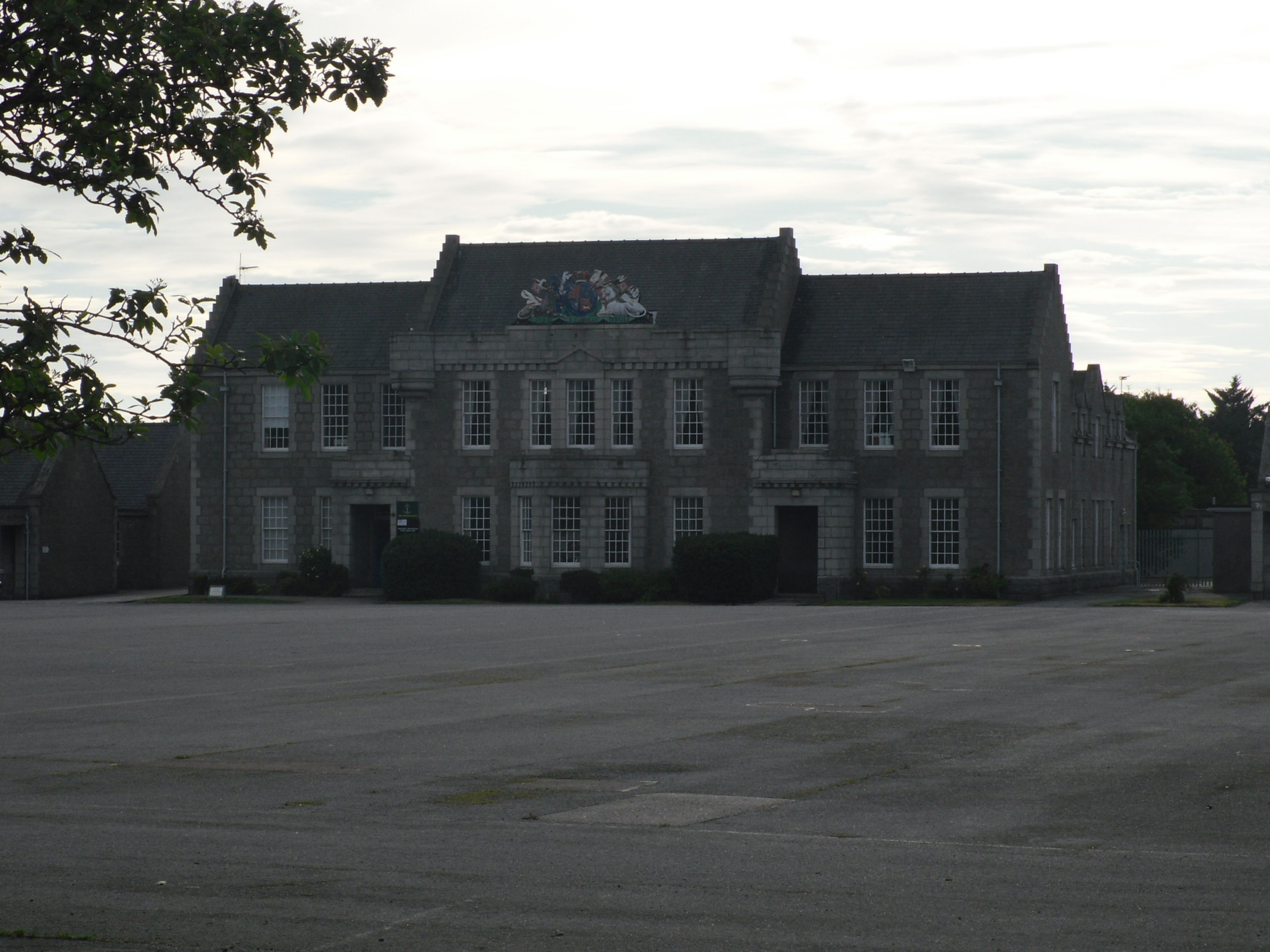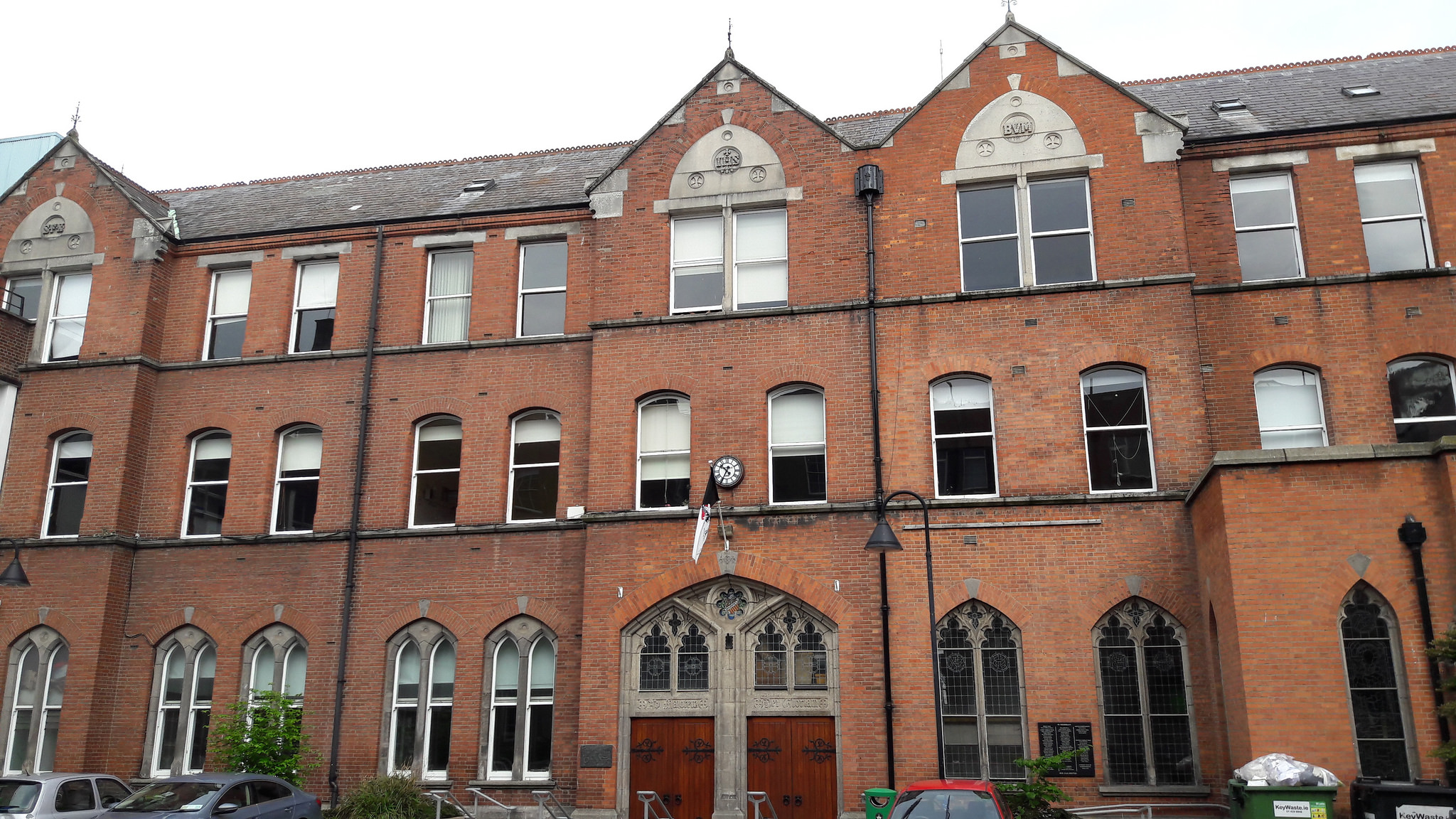|
Joseph M. Plunkett
Joseph Mary Plunkett (Irish: ''Seosamh Máire Pluincéid''; 21 November 1887 – 4 May 1916) was an Irish nationalist, republican, poet, journalist, revolutionary and a leader of the 1916 Easter Rising. Joseph Mary Plunkett married Grace Gifford in 1916, seven hours before his execution. Background Plunkett was born at 26 Upper Fitzwilliam Street in one of Dublin's most affluent districts. Both his parents came from wealthy backgrounds, and his father, George Noble Plunkett, had been made a papal count. Plunkett contracted tuberculosis (TB) at a young age and spent part of his youth in the warmer climates of the Mediterranean and North Africa. He spent time in Algiers where he studied Arabic literature and language and composed poetry in Arabic. He was educated at the Catholic University School (CUS) and by the Jesuits at Belvedere College in Dublin and later at Stonyhurst College, in Lancashire, England where he acquired some military knowledge from the Officers' Training Co ... [...More Info...] [...Related Items...] OR: [Wikipedia] [Google] [Baidu] |
Dublin
Dublin (; , or ) is the capital and largest city of Republic of Ireland, Ireland. On a bay at the mouth of the River Liffey, it is in the Provinces of Ireland, province of Leinster, bordered on the south by the Dublin Mountains, a part of the Wicklow Mountains range. At the 2016 census of Ireland, 2016 census it had a population of 1,173,179, while the preliminary results of the 2022 census of Ireland, 2022 census recorded that County Dublin as a whole had a population of 1,450,701, and that the population of the Greater Dublin Area was over 2 million, or roughly 40% of the Republic of Ireland's total population. A settlement was established in the area by the Gaels during or before the 7th century, followed by the Vikings. As the Kings of Dublin, Kingdom of Dublin grew, it became Ireland's principal settlement by the 12th century Anglo-Norman invasion of Ireland. The city expanded rapidly from the 17th century and was briefly the second largest in the British Empire and sixt ... [...More Info...] [...Related Items...] OR: [Wikipedia] [Google] [Baidu] |
Arabic Language
Arabic (, ' ; , ' or ) is a Semitic language spoken primarily across the Arab world.Semitic languages: an international handbook / edited by Stefan Weninger; in collaboration with Geoffrey Khan, Michael P. Streck, Janet C. E.Watson; Walter de Gruyter GmbH & Co. KG, Berlin/Boston, 2011. Having emerged in the 1st century, it is named after the Arab people; the term "Arab" was initially used to describe those living in the Arabian Peninsula, as perceived by geographers from ancient Greece. Since the 7th century, Arabic has been characterized by diglossia, with an opposition between a standard prestige language—i.e., Literary Arabic: Modern Standard Arabic (MSA) or Classical Arabic—and diverse vernacular varieties, which serve as mother tongues. Colloquial dialects vary significantly from MSA, impeding mutual intelligibility. MSA is only acquired through formal education and is not spoken natively. It is the language of literature, official documents, and formal written m ... [...More Info...] [...Related Items...] OR: [Wikipedia] [Google] [Baidu] |
Joseph Mary Plunkett
Joseph Mary Plunkett (Irish: ''Seosamh Máire Pluincéid''; 21 November 1887 – 4 May 1916) was an Irish nationalist, republican, poet, journalist, revolutionary and a leader of the 1916 Easter Rising. Joseph Mary Plunkett married Grace Gifford in 1916, seven hours before his execution. Background Plunkett was born at 26 Upper Fitzwilliam Street in one of Dublin's most affluent districts. Both his parents came from wealthy backgrounds, and his father, George Noble Plunkett, had been made a papal count. Plunkett contracted tuberculosis (TB) at a young age and spent part of his youth in the warmer climates of the Mediterranean and North Africa. He spent time in Algiers where he studied Arabic literature and language and composed poetry in Arabic. He was educated at the Catholic University School (CUS) and by the Jesuits at Belvedere College in Dublin and later at Stonyhurst College, in Lancashire, England where he acquired some military knowledge from the Officers' Training Co ... [...More Info...] [...Related Items...] OR: [Wikipedia] [Google] [Baidu] |
First World War
World War I (28 July 1914 11 November 1918), often abbreviated as WWI, was one of the deadliest global conflicts in history. Belligerents included much of Europe, the Russian Empire, the United States, and the Ottoman Empire, with fighting occurring throughout Europe, the Middle East, Africa, the Pacific, and parts of Asia. An estimated 9 million soldiers were killed in combat, plus another 23 million wounded, while 5 million civilians died as a result of military action, hunger, and disease. Millions more died in genocides within the Ottoman Empire and in the 1918 influenza pandemic, which was exacerbated by the movement of combatants during the war. Prior to 1914, the European great powers were divided between the Triple Entente (comprising France, Russia, and Britain) and the Triple Alliance (containing Germany, Austria-Hungary, and Italy). Tensions in the Balkans came to a head on 28 June 1914, following the assassination of Archduke Franz Ferdina ... [...More Info...] [...Related Items...] OR: [Wikipedia] [Google] [Baidu] |
Kimmage
Kimmage ( or ''Camaigh uisce'', meaning "crooked water-meadow", possibly referring to the meandering course of the River Poddle), is a suburb on the south side of the city of Dublin in Ireland. Location Kimmage is to the south of Dublin city centre, outside the ring of canals, but before the M50 ring motorway or the Dublin mountains. It is surrounded by Crumlin, Greenhills, Harold's Cross, Rathfarnham, Templeogue and Terenure. Kimmage is divided between postal districts Dublin 12 and Dublin 6W. History Larkfield, an old mill and farm in Kimmage owned by the family of Joseph Plunkett, was used as a clearing station for arms imported in the 1914 Howth gun-running for use in the 1916 Easter Rising. An Irish Volunteers secret camp, the Kimmage Garrison, was established by Plunkett and his brother George Oliver Plunkett. IRB members with engineering skills came from England and Scotland and lived rough for three months while they manufactured bombs, bayonets and pikes for the com ... [...More Info...] [...Related Items...] OR: [Wikipedia] [Google] [Baidu] |
Thomas MacDonagh
Thomas Stanislaus MacDonagh ( ga, Tomás Anéislis Mac Donnchadha; 1 February 1878 – 3 May 1916) was an Irish political activist, poet, playwright, educationalist and revolutionary leader. He was one of the seven leaders of the Easter Rising of 1916, a signatory of the Proclamation of the Irish Republic and Commandant of the 2nd Battalion, Dublin Brigade of the Irish Volunteers, which fought in Jacob's biscuit factory. He was executed for his part in the Rising at the age of thirty-eight. MacDonagh was assistant headmaster at St. Enda's School, Scoil Éanna, and lecturer in English at University College Dublin. He was a member of the Gaelic League, where he befriended Patrick Pearse and Eoin MacNeill. He was a founding member of the Irish Volunteers with MacNeill and Pearse. He wrote poetry and plays. His play, ''When the Dawn is Come'', was produced by the Abbey Theatre in 1908. Other plays include ''Metempsychosis'', 1912 and ''Pagans'', 1915, both produced by the Irish Thea ... [...More Info...] [...Related Items...] OR: [Wikipedia] [Google] [Baidu] |
Gaelic League
(; historically known in English as the Gaelic League) is a social and cultural organisation which promotes the Irish language in Ireland and worldwide. The organisation was founded in 1893 with Douglas Hyde as its first president, when it emerged as the successor of several 19th century groups such as the Gaelic Union. The organisation would be the spearhead of the Gaelic revival and ''Gaeilgeoir'' activism. Originally the organisation intended to be apolitical, but many of its participants became involved in the republican movement and the struggle for Irish statehood. History 'De-Anglicising Ireland" ''Conradh na Gaeilge'', the Gaelic League, was formed in 1893 at a time Irish as a spoken language appeared to be on the verge of extinction. Analysis of the 1881 Census showed that at least 45% of those born in Ireland in the first decade of the 19th century had been brought up as Irish speakers. Figures from the 1891 census suggested that just 3.5% were being raised speak ... [...More Info...] [...Related Items...] OR: [Wikipedia] [Google] [Baidu] |
Esperanto
Esperanto ( or ) is the world's most widely spoken constructed international auxiliary language. Created by the Warsaw-based ophthalmologist L. L. Zamenhof in 1887, it was intended to be a universal second language for international communication, or "the international language" (). Zamenhof first described the language in '' Dr. Esperanto's International Language'' (), which he published under the pseudonym . Early adopters of the language liked the name ''Esperanto'' and soon used it to describe his language. The word translates into English as "one who hopes". Within the range of constructed languages, Esperanto occupies a middle ground between "naturalistic" (imitating existing natural languages) and ''a'priori'' (where features are not based on existing languages). Esperanto's vocabulary, syntax and semantics derive predominantly from languages of the Indo-European group. The vocabulary derives primarily from Romance languages, with substantial contributions from Ge ... [...More Info...] [...Related Items...] OR: [Wikipedia] [Google] [Baidu] |
Officers' Training Corps
The Officers' Training Corps (OTC), more fully called the University Officers' Training Corps (UOTC), are military leadership training units operated by the British Army. Their focus is to develop the leadership abilities of their members whilst giving them an opportunity to take part in military life whilst at university. OTCs also organise non-military outdoor pursuits such as hill walking and mountaineering. UOTC units are not deployable units nor are their cadets classed as trained soldiers. The majority of members of the UOTC do not go on to serve in the regular or reserve forces. History General history of the units The emergence of the Officers' Training Corps as a distinct unit began in 1906, when the Secretary of State for War, Lord Haldane, first appointed a committee to consider the problem of the shortage of officers in the Militia, the Volunteer Force, the Yeomanry, and the Reserve of Officers. The committee recommended that an Officers' Training Corps be formed. ... [...More Info...] [...Related Items...] OR: [Wikipedia] [Google] [Baidu] |
Lancashire
Lancashire ( , ; abbreviated Lancs) is the name of a historic county, ceremonial county, and non-metropolitan county in North West England. The boundaries of these three areas differ significantly. The non-metropolitan county of Lancashire was created by the Local Government Act 1972. It is administered by Lancashire County Council, based in Preston, and twelve district councils. Although Lancaster is still considered the county town, Preston is the administrative centre of the non-metropolitan county. The ceremonial county has the same boundaries except that it also includes Blackpool and Blackburn with Darwen, which are unitary authorities. The historic county of Lancashire is larger and includes the cities of Manchester and Liverpool as well as the Furness and Cartmel peninsulas, but excludes Bowland area of the West Riding of Yorkshire transferred to the non-metropolitan county in 1974 History Before the county During Roman times the area was part of the Bri ... [...More Info...] [...Related Items...] OR: [Wikipedia] [Google] [Baidu] |
Stonyhurst College
Stonyhurst College is a co-educational Catholic Church, Roman Catholic independent school, adhering to the Society of Jesus, Jesuit tradition, on the Stonyhurst, Stonyhurst Estate, Lancashire, England. It occupies a Grade I listed building. The school has been fully co-educational since 1999. A precursor institution of the college was founded in 1593 by Robert Persons, Father Robert Persons SJ at Saint-Omer, St Omer, at a time when penal laws prohibited Roman Catholic education in England. After moving to Bruges in 1762 and Liège in 1773, the college moved to Stonyhurst in 1794. It provides boarding and day education to approximately 450 boys and girls aged 13–18. On an adjacent site, its Preparatory school (UK), preparatory school, Stonyhurst Saint Mary's Hall, St Mary's Hall, provides education for boys and girls aged 3–13. The school combines an academic curriculum with extra-curricular pursuits. Roman Catholicism plays a central role in college life, with emphasis on ... [...More Info...] [...Related Items...] OR: [Wikipedia] [Google] [Baidu] |
Belvedere College
Belvedere College S.J. (sometimes St Francis Xavier's College) is a voluntary secondary school for boys in Dublin, Ireland. The school has numerous alumni in the arts, politics, sports, science, and business. History Belvedere owes its origins to the efforts of John Austin who opened primary and secondary schools off Fishamble Street in 1750. The Society of Jesus has been active in the area around Hardwicke Street since 1790. They founded St Francis Xavier's College in the disused Poor Clare convent on Hardwicke Street with nine students in 1832, three years after Catholic emancipation. In 1841, the Jesuits purchased Belvedere House on neighbouring Great Denmark Street, which gave the school its name. George Augustus Rochfort (1738–1814), who became the second Earl of Belvedere in 1774, built Belvedere House, whose interior decoration was carried out by Michael Stapleton, a leading stucco craftsman of his time. Belvedere was caught up in the events of the 1916 Rising, w ... [...More Info...] [...Related Items...] OR: [Wikipedia] [Google] [Baidu] |









